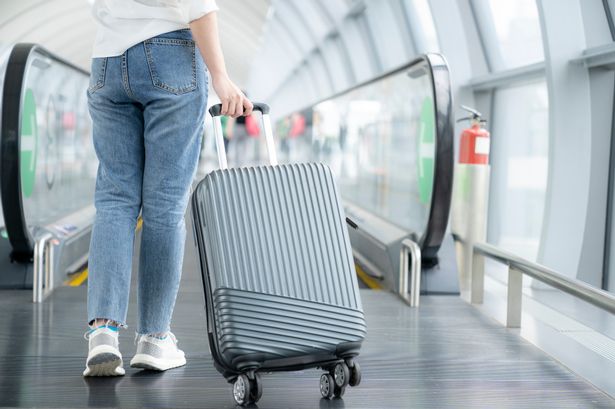A travel hack known as ‘skiplagging’ is saving passengers hundreds of pounds by missing their connecting flight, and airlines hate it – but there’s a catch to it that you should be aware of.
A sneaky travel trick hated by airlines is saving hundreds thousands of pounds, but with the holiday season fast approaching, there’s something that you need to know before you try it for yourself.
‘Skiplagging’ is a common money-saving flight hack used by travellers and is also known as ‘hidden city ticketing’. It’s a way for travellers to save money on flights by booking a multi-stop flight and leaving at the connecting city instead of flying all the way to the supposed final destination.
By successfully using this method, passengers can save hundreds on their trips. However, there’s a catch to it, which can massively affect your entire flight itinerary.
READ MORE: easyJet, Ryanair and TUI customers may get lower prices with this quick trick
What is ‘skiplagging’?
Multi-stop flights are sometimes cheaper than direct flights, and it works by searching for flights that have a connection to the destination you intend to get off to. For example, you’re looking to book a holiday to New York from London, but the tickets cost £578 for a direct flight.
Instead, by taking a flight to Chicago, with a layover in New York, it costs £350. That’s £228 saved, which could be used as a spending money. So, imagine if you did that to all of your flights.
Airlines hate ‘skiplagging’ for obvious reasons: it affects their revenue. By using connecting flights as a cheaper alternative, airlines don’t receive the higher fare that they could’ve earned by a passenger taking a direct flight to the person’s actual final destination. Not only that, empty seats are also a loss of money for airlines, as they could’ve sold those to other passengers.
As reported by NPR, in 2019, German airline Lufthansa sued a passenger who saved money by skiing a leg of their purchased round-trip ticket. The passenger had found a cheaper alternative to travel between several cities in Europe and in the United States, “breaking the rules when he skipped part of his return flight” from Oslo to Seattle.
The airline sued the passenger, demanding £1,507 to make up the difference. However, the court dismissed Lufthansa’s case, saying that the airline had a “lack of transparency” and wasn’t allowed to recalculate the airfare solemnly based on this occasion.
READ MORE: Cheapest day of the week to fly and when to book to save money on your next holiday
Does ‘skiplagging
As a former check-in agent, I would suggest future travellers be careful of using this method – as it can cost you far more on the return journey. A common mistake that passengers make when trying to ‘skip lag’ is to book their departure and return flight under the same booking.
Not following through with the entire flight itinerary leaves passengers at risk of having the remaining portion of their tickets cancelled. This is because airlines will ‘assume’ that you didn’t take the initial flight at first, therefore, the rest of the itinerary gets cancelled.
Some airlines have also introduced new rules for sending checked-in luggage to the final destination, as opposed to the stop-gap destination, risking passengers being left without their luggage. This was the case for Jesse Collier, who attempted to do ‘skip lagging’ by booking a multi-city flight to New York City without intending to take the second flight to Buffalo. However, she was caught by surprise when she was left with no suitcase, as it had gone to her final destination.
Also, it’s important to note that passengers can’t turn up at their layover airport with the excuse that they have missed their first flight. This is because airlines treat a passenger who has missed the first flight as a ‘no show’, cancelling the remaining segments of the flight and the passenger becoming responsible for rebooking at their own expense.
Despite ‘skiplagging’ being a widely-shared hack for travellers, skipping flights actually violates the airline’s terms and conditions, often found at the bottom of the page when purchasing your ticket. If caught, travellers can face fines from the airlines, as well as a potential ban from traveling with them.
